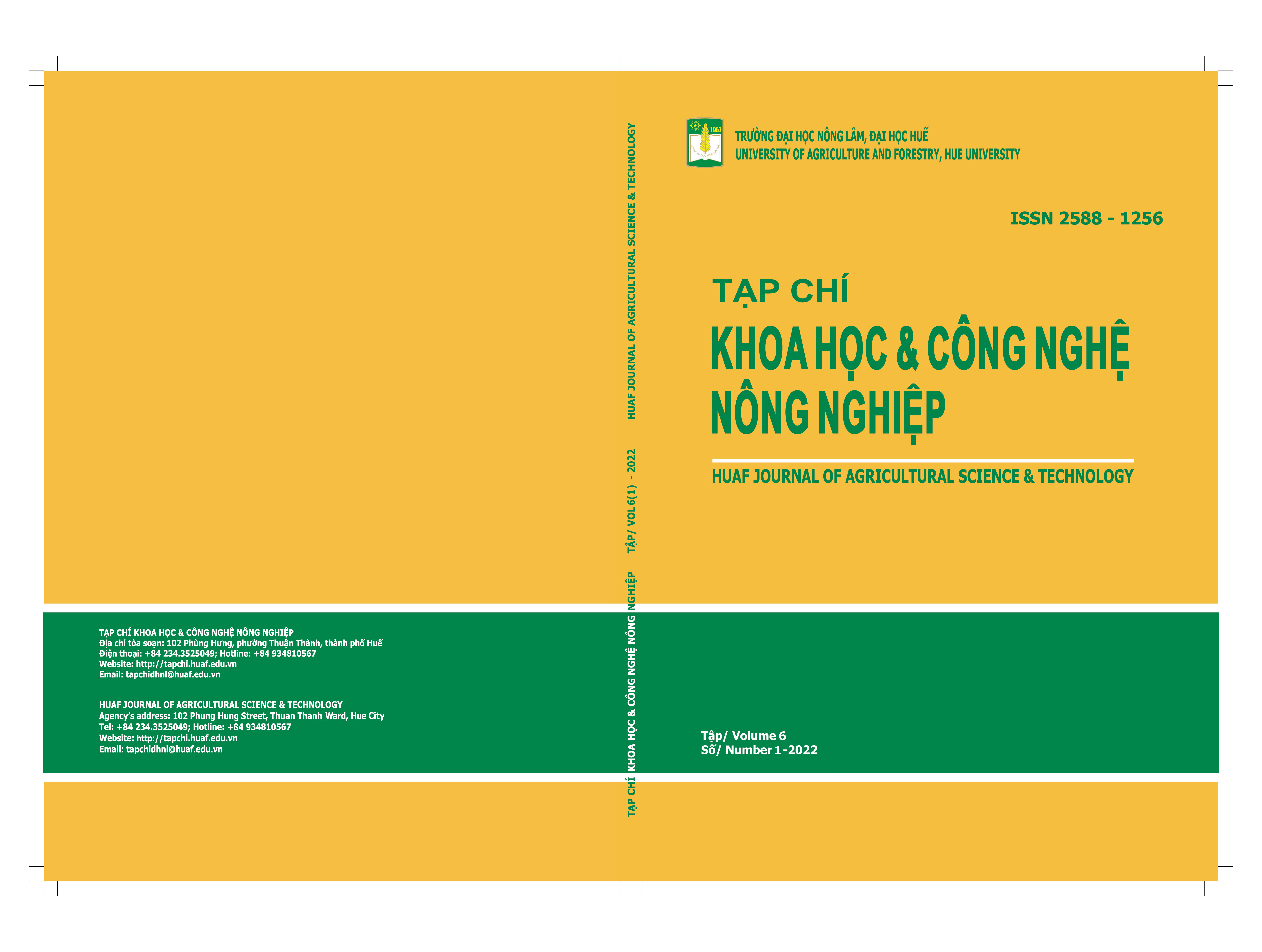##plugins.themes.huaf_theme.article.main##
Abstract
The study on biological characteristics and food comsumption of the predatory mite Lasioseius sp. is an important basis for evaluating the ability to use this predatory in the management of panicle rice mite. This study was conducted on 2 objects, the panicle rice mite Steneotarsonemus spinki Smiley and predatory rice mite (Lasioseius sp.). Experiments on biological characteristics of predatory mite were carried out at temperatures of 30oC, 32.5oC and feeding potential of the predatory mite (Lasioseius sp.) at 30ºC in 2 conditions with choice and non choice test of food. The both experiments were placed inside an incubator setting a huminity of 80 - 85%, and a photoperiod of 12L: 12D. The results indicated that developmental time of the predatory mite (Lasioseius sp.) reared at 30°C (6.2 days) was shorter than and fecundity was higher than (25.33 eggs/female adult) those at 32.5°C. The results also showed that, both larvae and adults of predatory mite could consume all stages of the panicle rice mite. In non choice test, the larvae of the predatory mite consumed the eggs of S. spinki was highest (11.67 eggs/day) while the adults of predatory mite consumed adults of S. spinki was the highest (32.00 adults/day). When there was a choice test, eggs S. spinki were the most favourite food of larvae Lasioseius sp. with the rate of 38.51% and adults S. spinki of were the most favourite food of adults Lasioseius sp. with the rate of 63.61%. The result showed that Lasioseius sp. is a potential biological agent to prevent and control the panicle rice mite.

